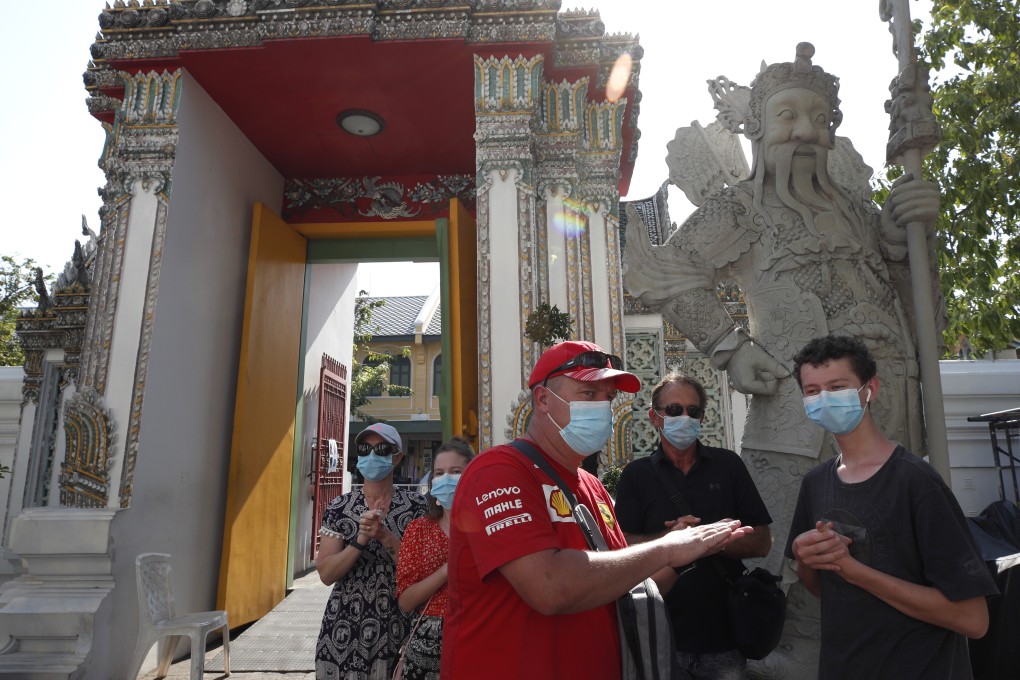Destinations known | Thai health minister blames ‘dirty’ Western tourists for country’s coronavirus cases
- Officials aren’t immune to xenophobia and racism brought on by the coronavirus pandemic
- Tweets posted by an account associated with Anutin Charnvirakul suggested ‘farangs’ should be feared more than Asians

Some of the uglier side effects of the new coronavirus include the xenophobia and racism the pandemic has aroused. And those in positions of power are not immune to this contagion – just look at United States President Donald Trump’s insistence on calling Sars-CoV-2 “the Chinese virus”, an act with patently political overtones.
It seems Thailand has also taken a top-down approach to odious invective. On March 12, tweets posted by an account associated with health minister Anutin Charnvirakul, which has since been deleted, suggested that “dirty” Western tourists were more likely to spread the virus than Asian travellers.
“It’s winter right now in Europe so these people are fleeing the cold, in Thailand. Many are dressed dirtily and never shower. As hosts we have to be careful,” read one of the posts, according to an article by Bangkok-based news site Khaosod English.
“Today I’m in Chiang Mai. There’s pretty much no more Chinese tourists, only farangs. More than 90% of Thais wear masks, but not a single farang has one. This is why there’re so many infections in their countries. We have to be more careful of Westerners than Asians,” read another tweet, in which travellers from the West are referred to by the Thai slang for white people.
In an interview with the BBC, the minister, who was accused of racism in February for proposing that face mask-free foreigners be kicked out of the country, denied that the tweets were his doing.
